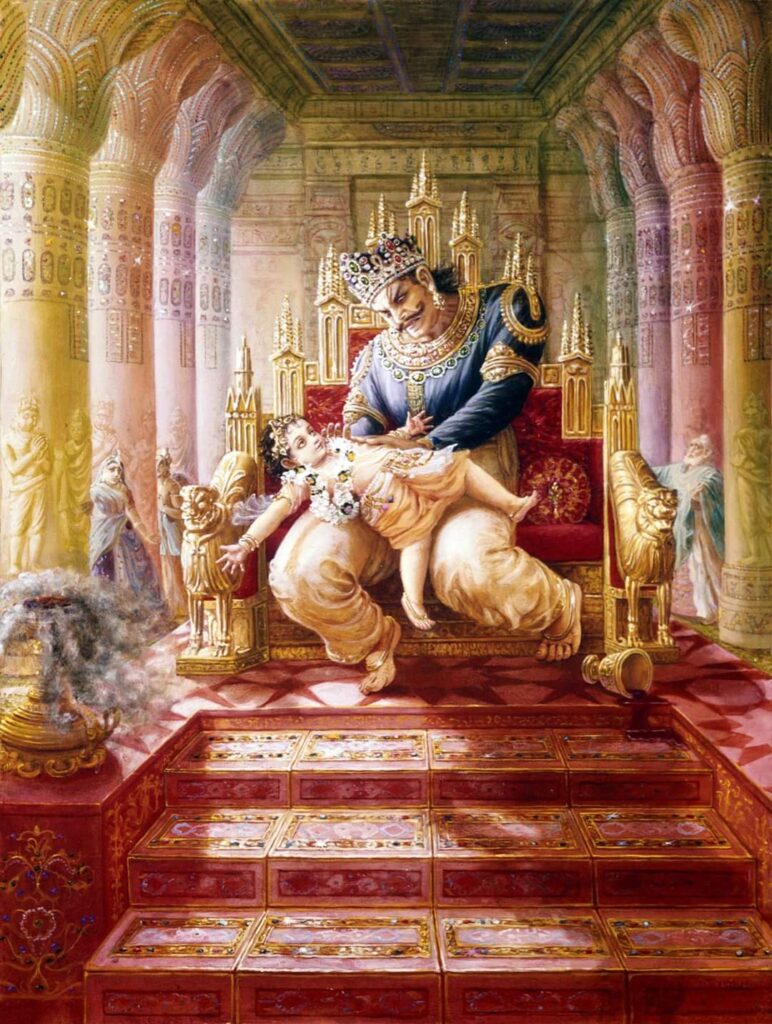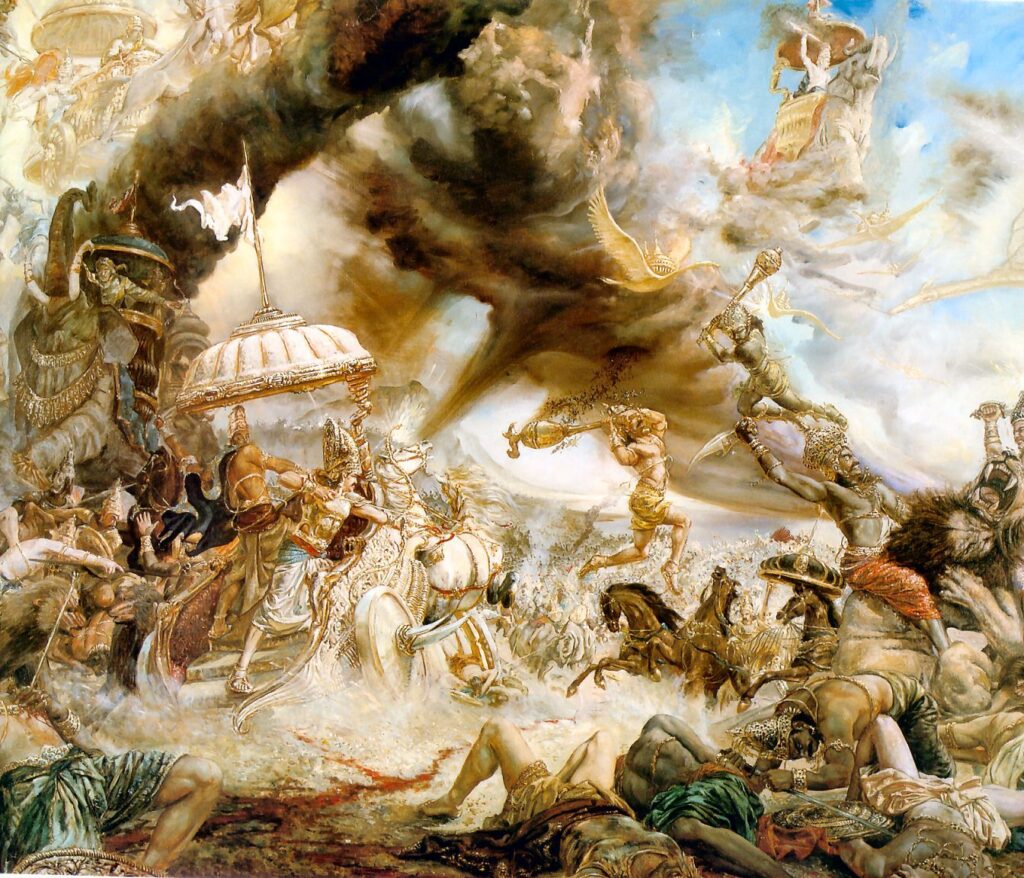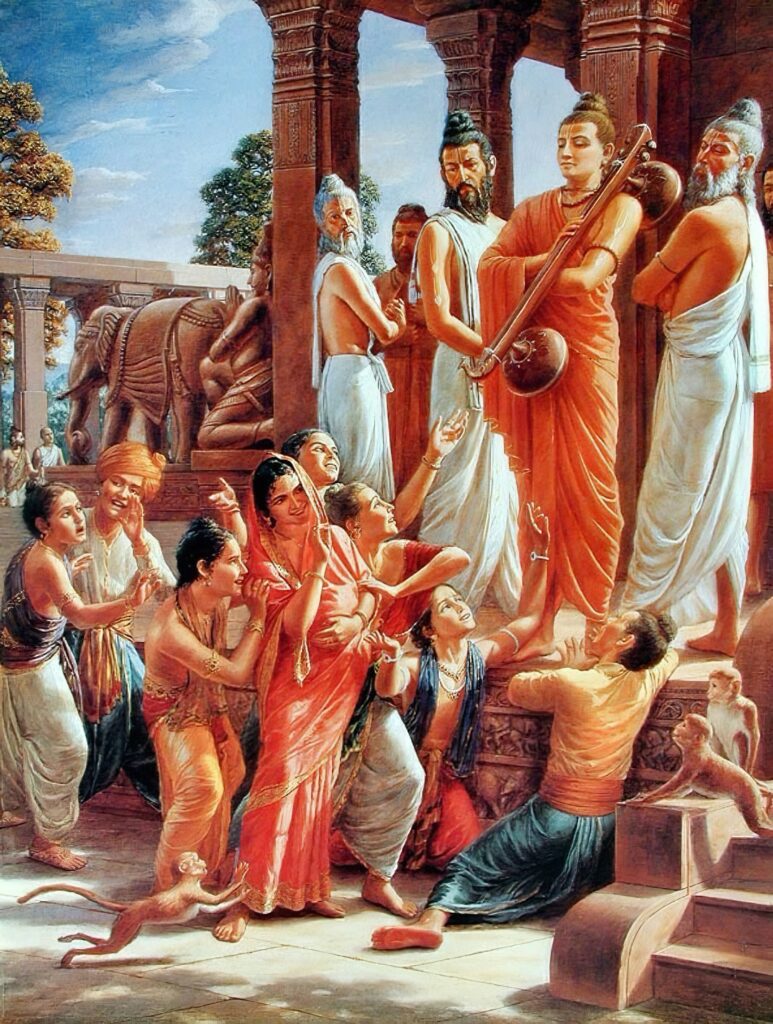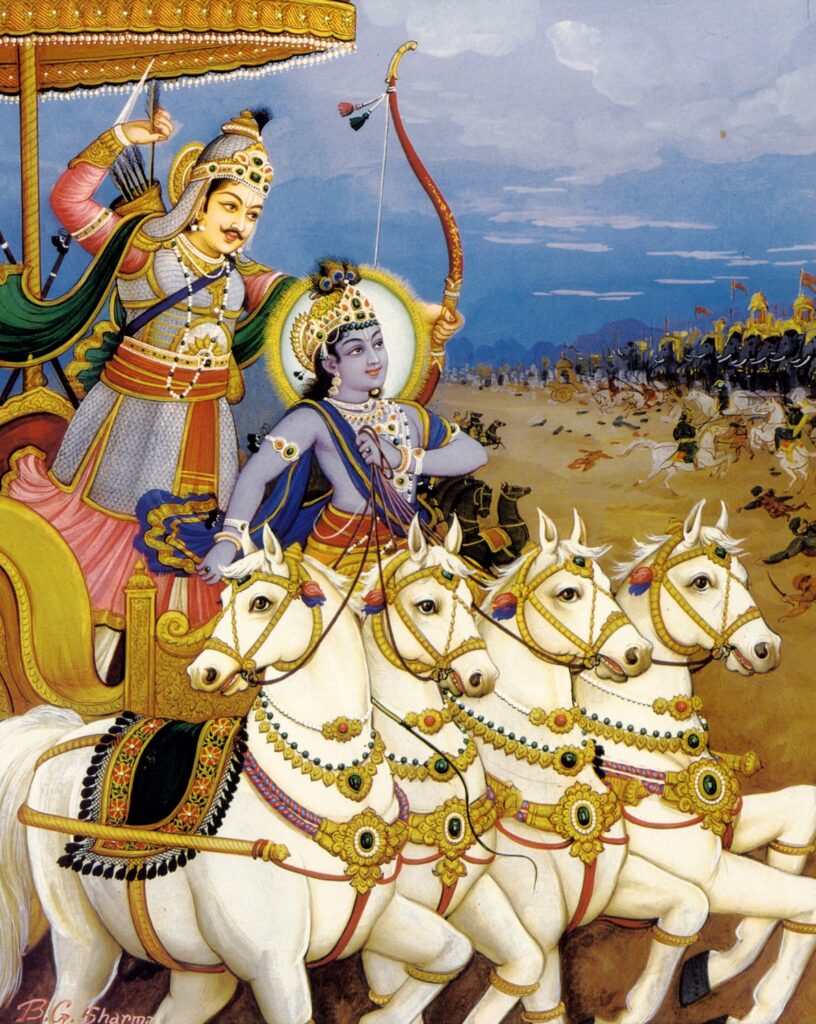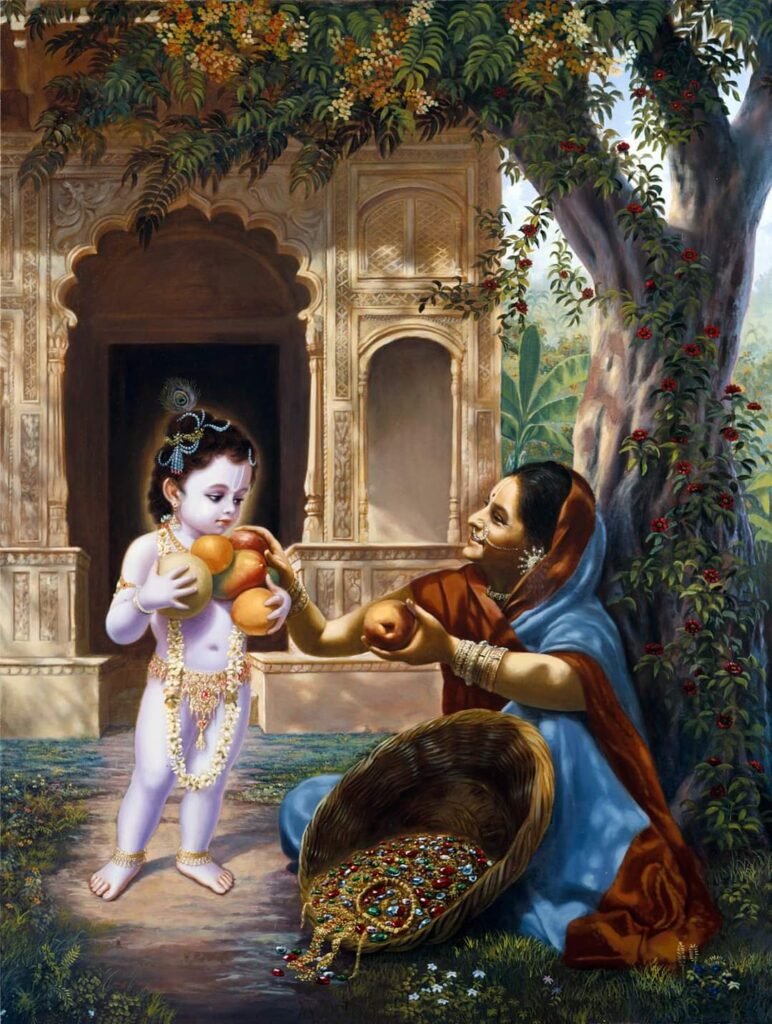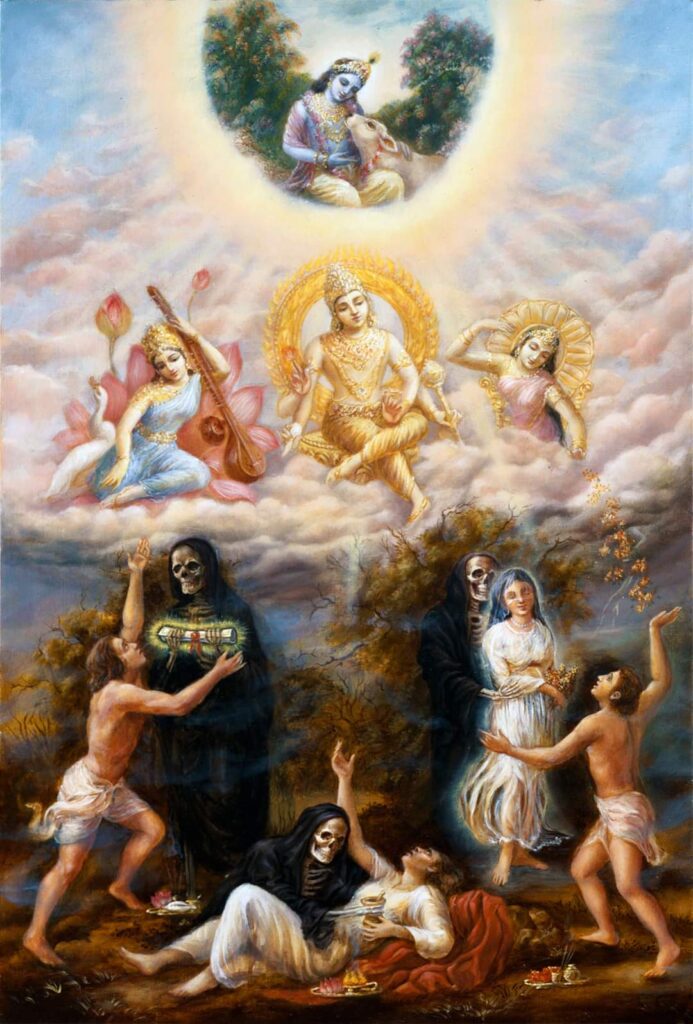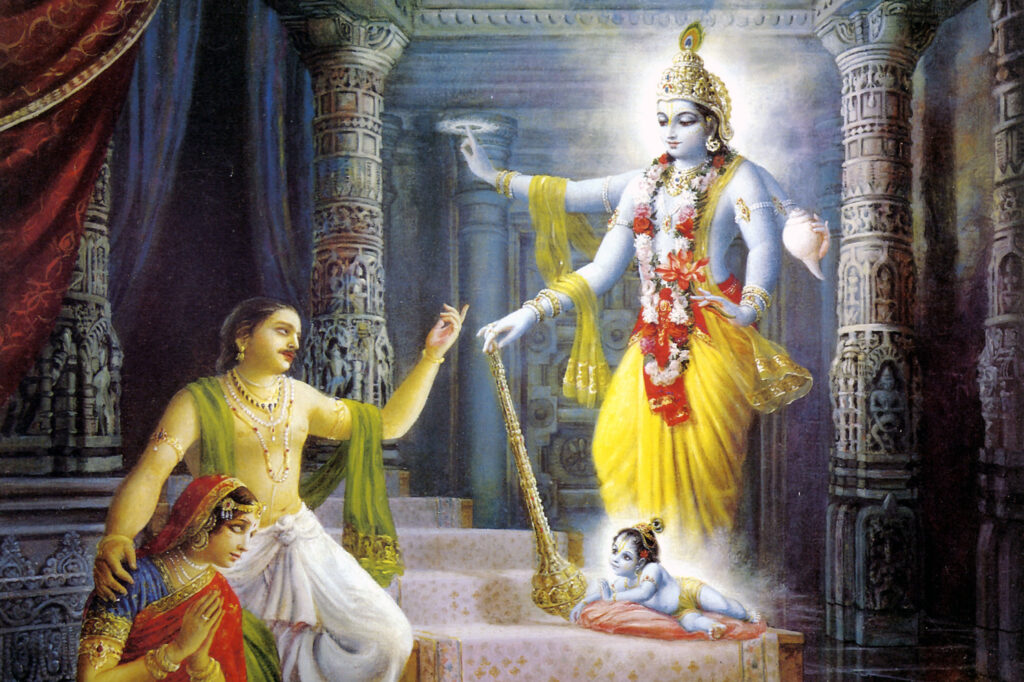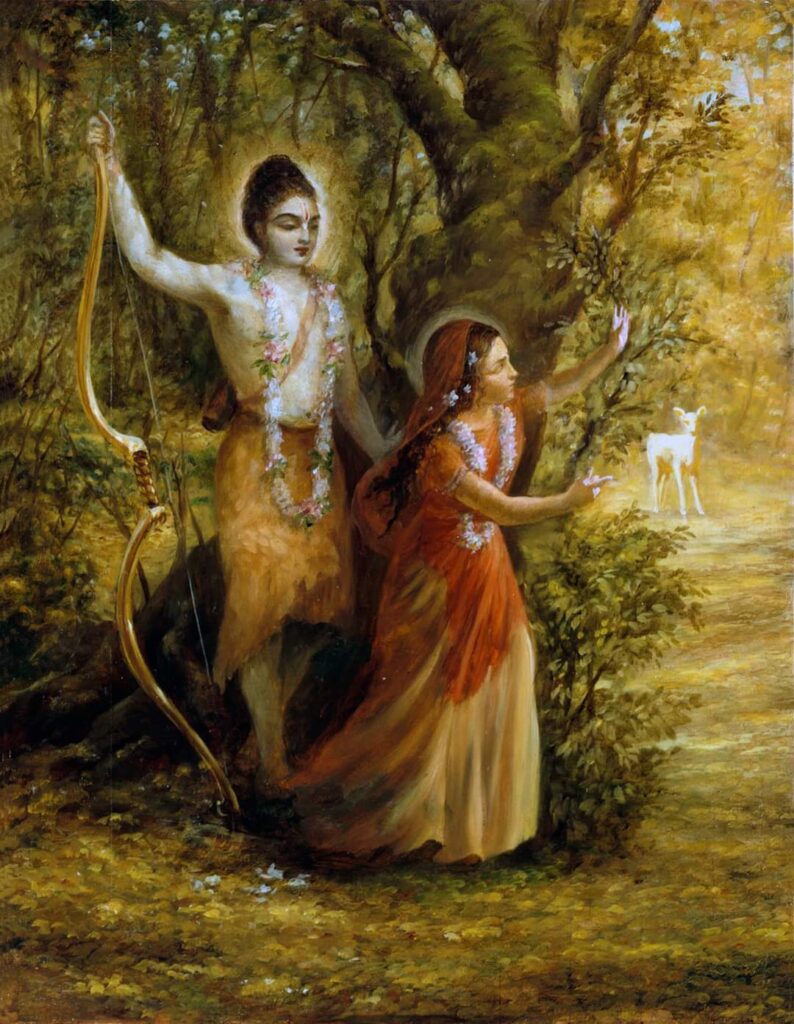In the past, I wrote a few articles about the origin of the soul, according to the way Prabhupada explains it in different passages. However, although Srila Prabhupada explains this topic in a quite detailed way in different places, at the same time he cautioned us about the danger and ultimate uselessness of discussing it. Why is that?
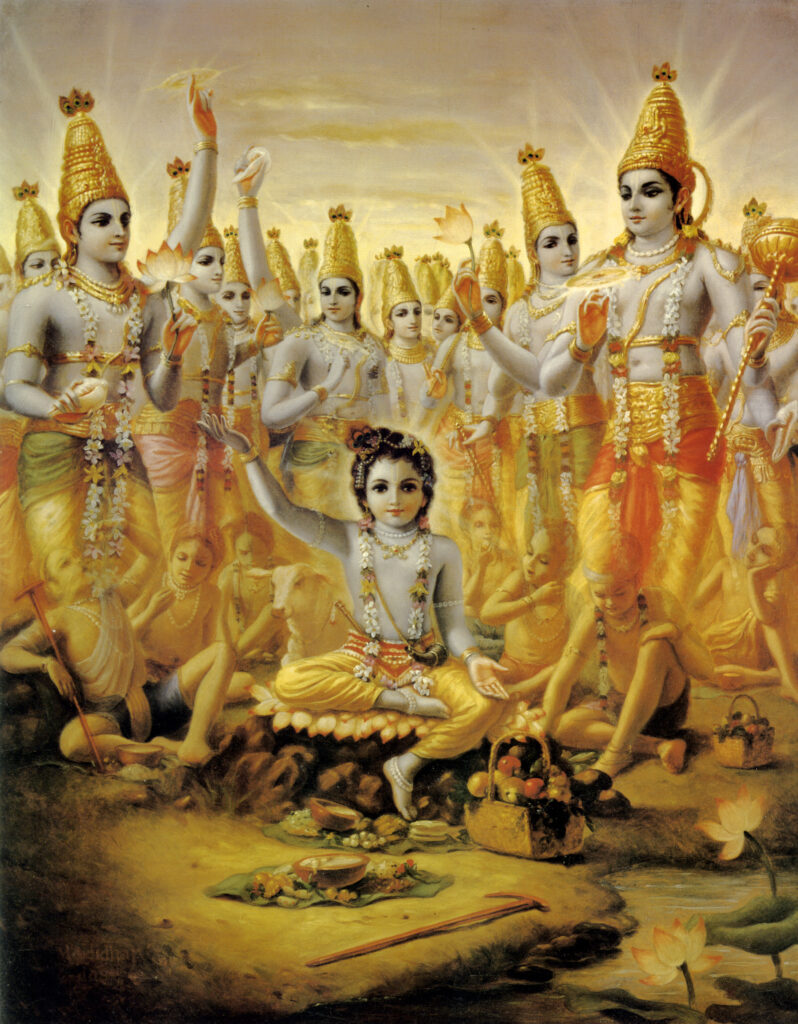
Imagine a crazy person who thinks he is Napoleon. The crazy man looks at you and asks: “How did I become Napoleon?” This is a question that has no sane answer because it starts from a false premise. He was never Napoleon and will never be, but somehow, in his insanity, he thinks he is the great emperor, and starting from this false premise he asks how it happened and how can he go back to his original self. This is a question that comes from insanity, and it is impossible to answer it. The only way to answer it is to somehow convince him that he never became Napoleon in the first place. As soon as he understands it, it will be easy for him to understand everything.
Similarly, in this material world, we live in an insane condition, thinking that we are separated from Krsna. There is nothing that is not an energy of Krsna. Everything is inside Krsna and He is everywhere. Srila Prabhupada explains that both the internal energy and the material energy are in reality not different because both come from Krsna. The energy is in nature not different, what makes it material is that we try to separate it from Krsna. When something is connected with Krsna it is considered spiritual (just like a temple, a deity, or Prasadam), while things that we consider separated from Krsna are material. Again, the energy is not different, but our consciousness makes it act in one way or the other.
For a pure devotee, like Arjuna, there is no difference between the material world and the spiritual world, since both are places where Krsna executes his pastimes. Srila Prabhupada mentions that Arjuna is always following Krsna in His different incarnations in the different material universes, and therefore Arjuna technically never goes back to Godhead. However, at the same time, he is considered a Nitya-Siddha, an eternally liberated soul, not different from eternal associates like Uddhava. This is because Arjuna is always with Krsna, and therefore for him, there is no material world.
What we call “Maya” is not the material world, but the energy of Krsna that allows us to fall into illusion and forget Him. That’s the energy that allows us to fall asleep, so to speak. As Srila Prabhupada makes clear in His purports, the soul is an eternal servant of Krsna. We are eternally connected with Krsna in a bond of love. This love for Krsna is eternally present in the soul and can’t be ever broken. That’s our true ego, who we really are. There is no possibility of us becoming anything else.
There is no chemical process that can convert gold into plastic or some other material. A golden ring will be always gold, no matter what we do. We may cover the ring with plastic and say that it is a plastic ring, but as soon as the plastic covering is removed, we see that the gold is still there. Actually, the ring never became plastic, although it was artificially covered by a layer of plastic. Its real nature as gold was still there the whole time, it never changed.
Similarly, we may temporarily forget about our true nature and become false enjoyers of this material world, but this is a temporary condition, an artificial imposition. As soon as the artificial contamination is removed and our original Krsna Consciousness is awakened, we understand that we actually never left Krsna’s company.
Srila Prabhupada explains this condition by making an analogy with someone sleeping. When we sleep we never leave our bed, but our consciousness goes somewhere else and we see so many imaginary situations. We may dream that we are Napoleon, and inside our dream, we may not remember that we ever were anything else, but as soon as we wake up we understand that in reality we never left our bed, and the idea of being Napoleon and fighting in Europe was just part of a dream. The question is thus not about understanding how did we become Napoleon, but about how to wake up from the dream. As soon as we are awakened, everything becomes clear.
Similarly, we are always with Krsna. In fact, we are with Krsna right now. He is even present as Paramatma inside our hearts to remind us of this. The only thing that prevents us from understanding this and associating with Him are the different material coverings we currently have, including the false ego, mind, intelligence, senses, and physical body. By chanting the holy names and serving Krsna and His devotees these coverings slack and we gradually can see ourselves in our original identity as eternal servants of Krsna.
The question of “How did I fall into the material world” or “How did I become separated from Krsna” is thus part of the material trap, because it starts from the illusory conception that we are separated from Krsna, or that we are now something else apart from eternal servants of Krsna. Starting from a false principle, these questions are similar to the crazy man asking how did he become Napoleon. They are thus impossible to answer. The more we become absorbed in such questions the more it reinforces the material illusion.
We can practically see that devotees who become too absorbed in this question usually end up concluding that the soul is not an eternal servant of Krsna, coming to the conclusion that the soul comes from the impersonal Brahmajoti or some other position where there is no propensity for service, which is precisely the wrong answer. In this way, this philosophical pursuit ends up just reinforcing their material conditioning and making their spiritual journey harder.
On the other hand, devotees who instead follow Prabhupada’s advice of avoiding the misleading question and instead study his books starting from the simple point that we are eternal servants of Krsna (a point that he reinforces every three or four paragraphs, literally) usually have no doubts in this regard.

